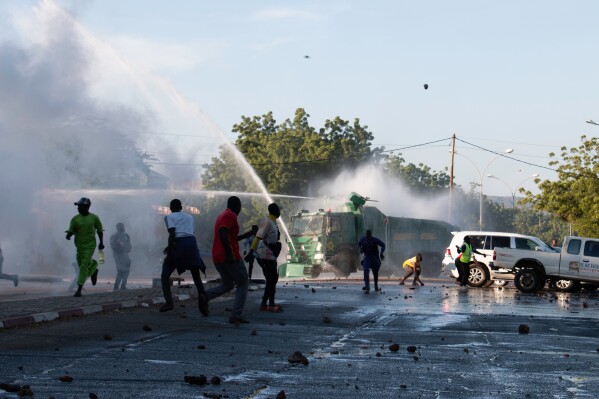
Esther Imonmion
Police clashed with protesters in Douala, Cameroon’s economic capital, on October 15, after opposition candidate Issa Tchiroma Bakary declared victory in the October 12 presidential election.
A heavy security presence was deployed across the city following the unrest, with spent tear gas canisters scattered on the streets.
The pro-opposition protesters believe Tchiroma won the election and that incumbent Paul Biya should accept defeat.
The independent electoral commission and the constitutional court have yet to release official results, which are expected by October 26.
In a video statement on Facebook, Tchiroma declared himself the winner, saying, “Our victory is clear; it must be respected.” He promised to publish a detailed regional breakdown of the votes in the coming days.
Analysts had widely predicted a win for President Paul Biya, 92, the world’s oldest head of state, given the fragmented opposition and the disqualification of his strongest challenger in August.
Eleven opposition candidates appeared on the ballot for the October 12 poll.
Tchiroma, in his late seventies, previously served as minister of employment and government spokesperson under Biya before resigning last year to launch his presidential campaign. His candidacy gained traction with large rallies and support from a coalition of opposition parties and civic groups.
Biya, who has ruled Cameroon since 1982, is the country’s second president since independence from France in 1960. His four-decade rule has been marked by corruption, economic stagnation, and a bloody separatist conflict in the Anglophone regions.
In the 2018 election, opposition leader Maurice Kamto similarly claimed victory before official results were announced. He was later arrested, sparking protests and the detention of dozens of his supporters.
